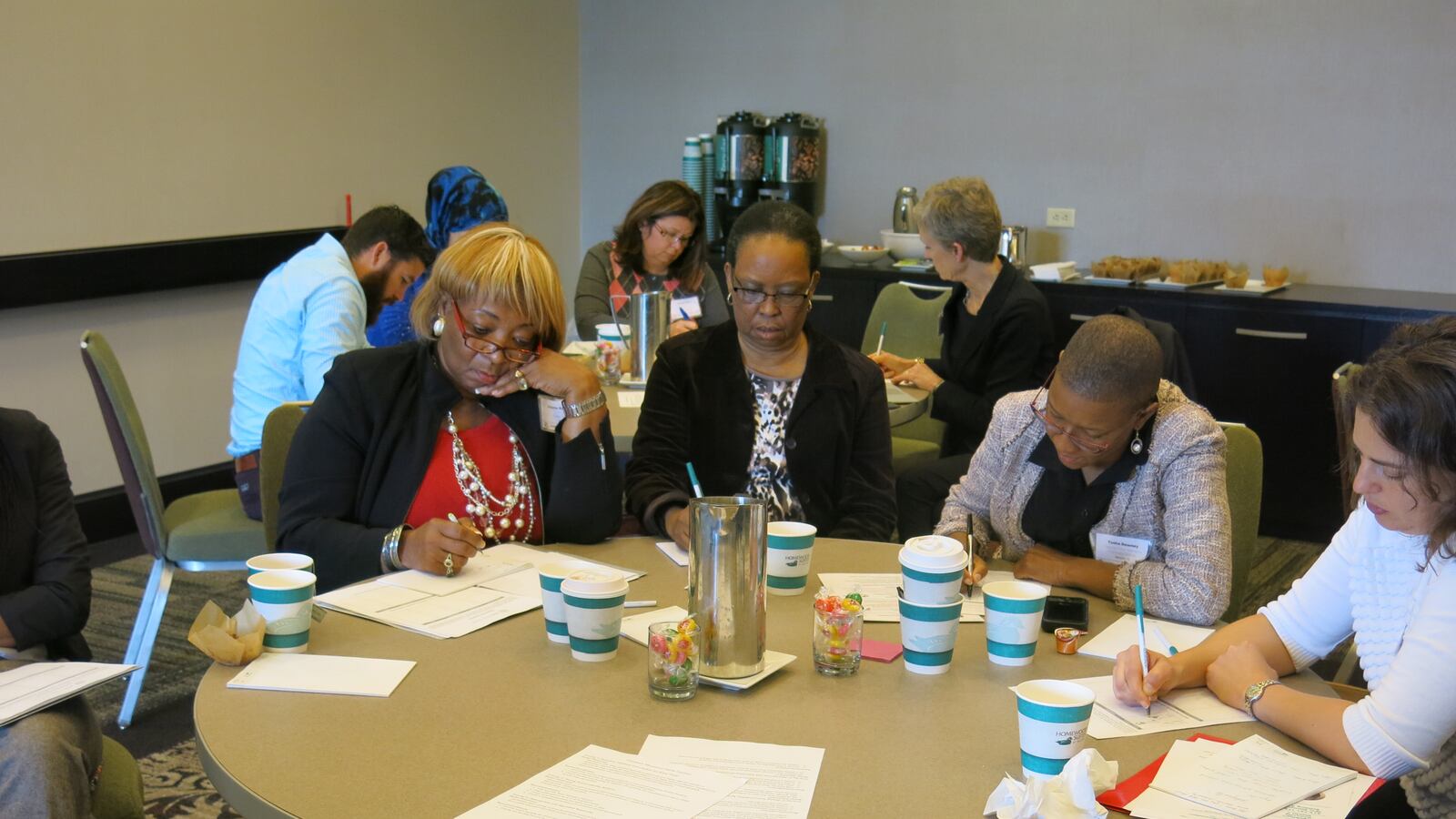A new education advocacy coalition emerged this week and lobbied state lawmakers for policies aimed at improving education for Tennessee students of color.
The Tennessee Educational Equity Coalition formed out of a two-day meeting in Nashville of 100 educators and civil rights leaders from across Tennessee.
The group drafted a policy agenda and recommendations for state lawmakers to fully fund the state’s Basic Education Program, increase spending on programs for English language learners, extend in-state tuition to immigrant students, and incentivize teacher preparation programs to recruit and graduate diverse students.
On Wednesday, the coalition presented its recommendations to 32 legislators.
Coalition members ranged from Nashville high school students to officials with the Tennessee Department of Education. They were hosted by Conexión Américas, a Nashville-based nonprofit organization that advocates for Latino families who are new to the state. Conéxion brought the organizations together
Conéxion has long provided educational and support services to the immigrant community in Mid-Tennessee. But Conexión officials decided to organize an advocacy group because they felt the services they offer could not sufficiently address the scope of problems facing the communities they serve.
Group members shared personal stories about the importance of educational opportunities and resources for students of color as they honed their messages for lawmakers.
Desirée Jones, a Knox County assistant principal who is black, said a positive interaction with her teacher one day in the second grade transformed her life and inspired her to become a teacher herself. A shy child who moved frequently and never spoke up in class, she described mustering the courage to raise her hand when her teacher asked what fog is — and how her teacher praise her afterwards. That single experience affirmed Jones’ love for reading and school.
“What I want to talk to (legislators) today about is about how we can remove barriers our black and brown students may have that may cause them not to feel safe in school,” Jones said.
The group shied away from divisive issues such as school choice, tuition vouchers and charter schools.
“There are some things we don’t agree on,” said Gloria Sweet-Love, president of the Tennessee chapter of the NAACP, which opposes school vouchers. “But there are enough things we do.”
Earlier Wednesday, Tennessee Assistant Education Commissioner Stephen Smith urged the group to make their voices heard.
“Don’t assume that other people are speaking for you,” he said. “They will try to speak for you. They will tell legislators that they are speaking for this group or that group. Don’t let them try that. You have a voice.”

